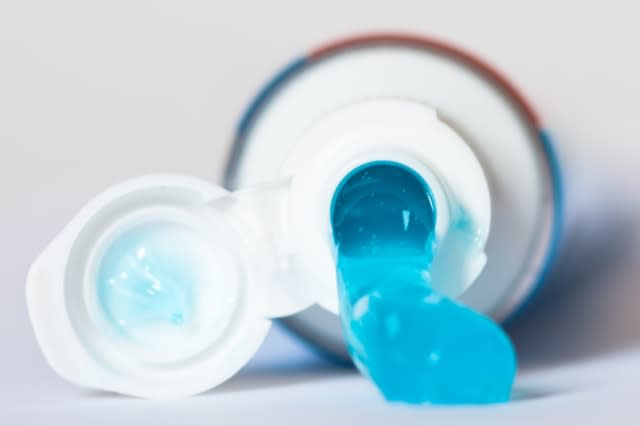Could your toothpaste give you cancer?

A chemical found in shampoos, hand gels and toothpaste may cause cancer and liver fibrosis, researchers have warned.
Triclosan, an anti-microbial agent, has been found to cause liver tumours in mice after long-term exposure. It appears to interfere with the functioning of a protein that detoxifies foreign chemicals in the body.
"Triclosan's increasing detection in environmental samples and its increasingly broad use in consumer products may overcome its moderate benefit and present a very real risk of liver toxicity for people, as it does in mice, particularly when combined with other compounds with similar action," warns Dr Robert Tukey of the University of California, San Diego School of Medicine.
Triclosan has been under suspicion for some time, with the US Food and Drug Administration (FDA) calling last year for soap manufacturers to prove that the ingredient is safe and effective. It has previously been linked with hormone disruption and impaired muscle contraction.
Colgate, which uses triclosan in its Total toothpaste, highlights the ingredient as a way of fighting plaque germs, the cause of most common oral health problems.
Article continues below

This summer, Patricia Verduin, head of Colgate-Palmolive research and development, said that claims that triclosan could cause cancer were "absolutely untrue".
"Three different studies in three different animal species have been reviewed by regulators around the world and all have concluded triclosan in Colgate Total is absolutely safe," she said.
It's worth noting that the mice in the study were fed massive doses of triclosan - three grams a day - and were exposed for six months, equivalent to 18 years in a human. Studies on primates don't appear to have had the same effect.
And the scientists say that triclosan does more good than harm in some products - but should be banned where this isn't the case. In handwashes, for example, it's of limited use, as it kills bacteria, rather than the viruses that are the cause of most disease.
"We could reduce most human and environmental exposures by eliminating uses of triclosan that are high volume, but of low benefit, such as inclusion in liquid hand soaps," says Dr Bruce Hammock of the University of California, Davis.
"Yet we could also for now retain uses shown to have health value - as in toothpaste, where the amount used is small."
The use of triclosan in the UK does appear to be falling. A report last year from the UK Environment Agency's chemical compliance team (EA) found that the amount of the chemical in the country's waterways is declining.
But, it warned, "It is very difficult to determine the current trend in usage as some companies stated that customer pressure had forced them to remove triclosan from their products, while others see triclosan as an important ingredient that is here to stay."
Read more on AOL Money:
Can a till receipt give you cancer?
Baby toy recalled over cancer risk
Chemicals found in cup of Waitrose Coffee



